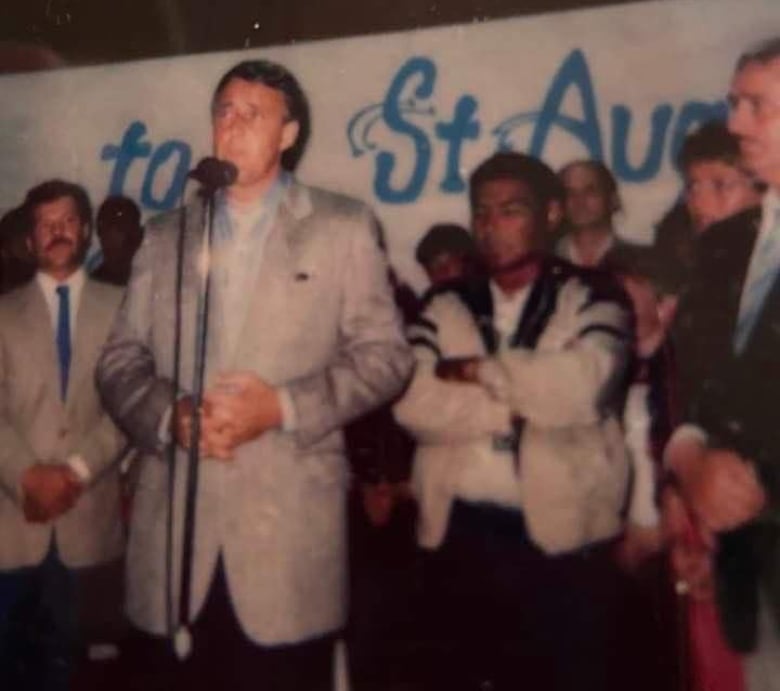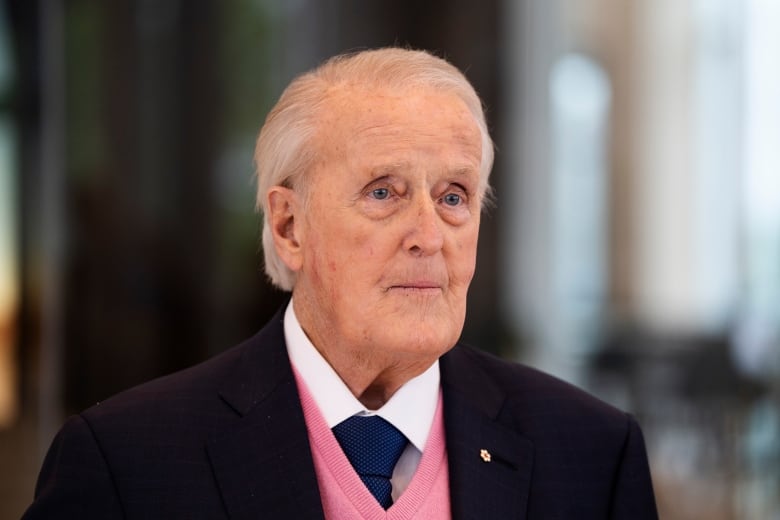Quebecers close to former prime minister Brian Mulroney are remembering him as a conscientious man from a small town in Quebec who maintained deep personal connections with people whose paths he crossed as he rose to prominence.
From former Quebec premier Lucien Bouchard to a childhood friend to a prominent member of Montreal’s Irish community, all say Mulroney had an uncanny ability to relate to people from all walks of life.
Mulroney died at the age of 84 Thursday “peacefully and surrounded by family,” his daughter, Caroline Mulroney, announced.
Bouchard, who went from being one of Mulroney’s strongest political allies to a formidable foe, only recently reconnected with his friend from university.
After not speaking to Mulroney for about 30 years, reconciling with him — even if only recently — was “absolutely important,” said Bouchard.
Their youth, ambition and respective egos cost them years of a “marvelous friendship,” he said.
The two fell out in 1990 due to a highly public rift over the failure of the Meech Lake constitutional accord, which led to Bouchard co-founding and leading the Bloc Québécois.
Bouchard said he and Mulroney became close friends again in the last month.
“We felt very strong for what we thought and fought for, so it can explain things, but at the end of the day, it was a lot of years lost,” he said. “We were close, close, close.”
Mulroney and Bouchard met at age 20, when they were law students at Université Laval in Quebec City.
The former Quebec premier and Bloc Québécois leader speaks about his reconciliation with Brian Mulroney in the final months of his life.
Most of their francophone classmates were surprised to learn that the English-speaking Mulroney was in fact not another “rich guy coming from Westmount” (an affluent city on the island of Montreal), Bouchard said — which was a rarity for the university’s law cohort.
“We discovered someone who was very much like us,” from a modest background in Baie Comeau, Que., Bouchard said. “He had a difficult time learning French, so we all became his teachers.”
Speaking fondly of his charismatic university friend who had a “contagious smile,” the former premier said Mulroney “had something in him, obviously, which meant that he had a future in politics.”
“He was a very courageous man,” Bouchard said. “He’s the epitome of a leader that doesn’t govern just by looking at the polls.”
Bouchard says Mulroney “looked ahead, took huge political risks and most of the time, he succeeded.”
Mulroney a ‘really human being’: childhood friend
A lifelong friend of Mulroney’s in Baie-Comeau, Walter Bisson, says he and the former prime minister met as children at the local recreational centre.
Both avid readers, they forged a friendship at the centre’s library that continued until Mulroney’s passing, Bisson said.
“To help anybody, he was ready any time,” Bisson said, adding that Mulroney remembered to greet all his friends on their birthdays, even after entering office. “If you were a friend of his, he made sure he’d stay your friend.”
Bisson recalls a determined 12-year-old Mulroney saying that if he “studied hard enough and worked hard enough” he would someday become prime minister.

“He wanted to be a lawyer, but he always talked politics,” Bisson said.
It was an interest that Mulroney was eager to share with young people who were considering politics as a career.
Bisson tells the story of a young man from Baie-Comeau who wanted to follow in Mulroney’s footsteps. When Bisson told the former prime minister, he says, in no time at all, Mulroney “phoned the young fellow back, and they kept that up by text for the last three or four years.”
“He was just that type of guy,” Bisson said. “He was a really human being.”
‘One of Quebec’s greatest Irish sons’: community leader
In Montreal, the former president of the St. Patrick’s society, Scott Phelan, says Mulroney would take genuine interest in the people he met. He says he’ll remember the former prime minister as a “fabulous listener” and an excellent speaker.
“He spoke from the heart,” Phelan said. “I don’t think he ever met a microphone he didn’t like.”

Before becoming prime minister, Mulroney was the grand marshal for the Montreal St. Patrick’s Day parade in 1980 and remained an active member of the city’s Irish community throughout his life. He was also a patron of Concordia University’s School of Irish Studies — one of the largest Irish studies programs outside of Ireland.
Phelan described Mulroney as an extraordinary man who would “really feel like he’s talking to you, not just a room of 600 people.”
“To see him just in a crowd of people with everybody else, just being a regular Irish Quebecer, Irish Montrealer, made everybody proud of their roots by association,” Phelan said. “The loss of Brian will be very deeply felt. He was one of Quebec’s greatest Irish sons.”



